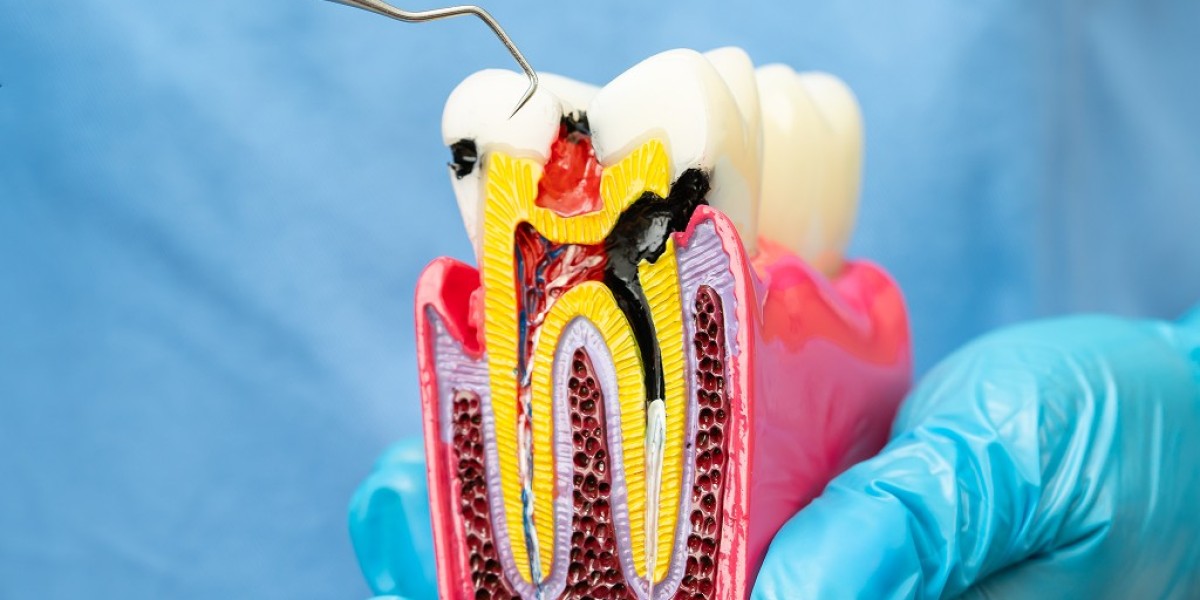If you have recently undergone Root Canal Treatment in Dubai, you might be wondering what to expect during the recovery phase. Root canal therapy is designed to save a damaged or infected tooth, but proper care after the procedure is essential to ensure a smooth and speedy healing process. Understanding the typical recovery timeline, common sensations, and best practices can help you manage discomfort and avoid complications.
Typical Recovery Timeline After Root Canal Treatment:
Recovery after root canal therapy generally follows a predictable pattern, though it can vary depending on individual cases and the complexity of the treatment.
Mild discomfort or sensitivity for 2 to 4 days
Gradual reduction of pain as inflammation subsides
Full healing of surrounding tissues over several weeks
Temporary sensitivity to hot or cold stimuli, especially if the final restoration is pending
Ability to resume normal activities within a day or two
Most patients find that following their dentist’s advice leads to an uneventful recovery.
Managing Pain and Discomfort During Recovery:
Mild pain is normal after root canal treatment due to tissue irritation and inflammation. You can manage this pain effectively by:
Taking over-the-counter pain relievers like ibuprofen or acetaminophen
Applying a cold compress to the cheek near the treated tooth to reduce swelling
Avoiding chewing hard or sticky foods on the treated side
Keeping the head elevated when resting to minimize throbbing
Using any prescribed medications exactly as directed by your dentist
If pain worsens or lasts beyond a week, contact your dental provider.
Caring for Your Tooth and Gums Post-Treatment:
Good oral hygiene is crucial to prevent infection and support healing around the treated tooth.
Brush gently with a soft-bristled toothbrush twice daily
Floss carefully to avoid irritating the treatment site
Rinse with a warm saltwater solution to soothe gums and reduce bacteria
Avoid using mouthwash with alcohol until fully healed
Stay consistent with routine dental checkups
Maintaining a clean mouth helps reduce the risk of complications.
What to Eat and Avoid After Root Canal Treatment:
Your diet plays an important role in recovery by preventing stress on the treated tooth and minimizing discomfort.
Choose soft, easy-to-chew foods like yogurt, mashed potatoes, and soups
Avoid very hot, cold, spicy, or acidic foods that may irritate sensitivity
Steer clear of sticky candies, nuts, and hard foods that could damage the temporary restoration
Stay hydrated by drinking plenty of water
Avoid alcohol and tobacco, which can delay healing
Eating wisely supports tissue repair and comfort.
When to Follow Up With Your Dentist:
Follow-up appointments ensure the root canal treatment is successful and that the tooth heals properly.
Typically scheduled 1 to 2 weeks after treatment for evaluation
Additional visits may be needed to place a permanent crown or restoration
Contact your dentist sooner if you experience severe pain, swelling, or signs of infection
Regular dental checkups help monitor the treated tooth long-term
Prompt follow-up care is key to avoiding complications and protecting your oral health.
Preventing Future Dental Problems Post-Root Canal:
To keep your restored tooth healthy and avoid further issues, consider these preventive measures:
Get a permanent crown placed to protect the treated tooth from fracture
Practice excellent oral hygiene daily
Avoid chewing on hard objects like ice or pens
Attend routine dental cleanings and exams every six months
Address any new symptoms such as sensitivity or pain immediately
Preventive care helps ensure your tooth lasts a lifetime.
Final Thoughts:
Recovery after Root Canal Treatment in Dubai typically involves mild, manageable discomfort that subsides within a few days. Following your dentist’s instructions on pain management, oral hygiene, diet, and follow-up care plays a crucial role in ensuring a smooth healing process. Understanding what to expect and how to care for your treated tooth will not only ease your recovery but also promote long-term dental health. Should any unusual symptoms arise, don’t hesitate to seek professional advice to safeguard your smile.








